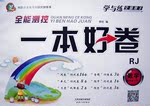题目内容
The Arhat Who Bares His Heart (开心罗汉)
Here is a story about one of the 18 arhats (阿罗汉) in the Buddhist temple.
Shubo Jia (戌博迦) was a crown prince. He did not really want to become the __21__ of his small state. Instead, he wanted to leave the world of red dust and follow the Buddha and find enlightenment. But he __22__ he had responsibilities to his kingdom.
His younger brother, however, wanted very much to become king, and was __23__ to mount (发动) an armed rebellion against Shubo Jia in order to claim the throne.
And so, to calm his brother and to prevent a war, and above all to pursue the path he had decided he must follow to find enlightenment, he called his __24__ to him, and explained that there was no desire in his heart __25__ the land. All that was in his __26__ was the Buddha nature.
His brother did not believe any of this, for, in his mind, whatever the Buddha nature might be, it could not __27__ with the joy of running a kingdom, even a small kingdom and having everyone obey one’s every command. And so his brother suspected that Shubo Jia was __28__ trying to fool him with some unworthy ruse.
SHubo Jia protested that he was completely __29__. And with that, he pulled __30__ his gown, and the face of a Buddha was seen peering out from the middle of his chest, for indeed in his heart there was only the Buddha nature.
So that is how he is represented in art today. And it is why he is called “The Arhat Who Bares His Heart.”
21. A. head B. king C. prince D. ruler
22. A. knew B. guessed C. thought D. said
23. A. anxious B. afraid C. prepared D. interested
24. A. men B. father C. wife D. brother
25. A. to rule B. to take C. to keep D. to follow
26. A. state B. power C. heart D. eyes
27. A. compete B. deal C. connect D. compare
28. A. certainly B. justly C. merely D. sincerely
29. A. sincere B. true C. faithful D. eager
30. A. down B. open C. off D. out
Here is a story about one of the 18 arhats (阿罗汉) in the Buddhist temple.
Shubo Jia (戌博迦) was a crown prince. He did not really want to become the __21__ of his small state. Instead, he wanted to leave the world of red dust and follow the Buddha and find enlightenment. But he __22__ he had responsibilities to his kingdom.
His younger brother, however, wanted very much to become king, and was __23__ to mount (发动) an armed rebellion against Shubo Jia in order to claim the throne.
And so, to calm his brother and to prevent a war, and above all to pursue the path he had decided he must follow to find enlightenment, he called his __24__ to him, and explained that there was no desire in his heart __25__ the land. All that was in his __26__ was the Buddha nature.
His brother did not believe any of this, for, in his mind, whatever the Buddha nature might be, it could not __27__ with the joy of running a kingdom, even a small kingdom and having everyone obey one’s every command. And so his brother suspected that Shubo Jia was __28__ trying to fool him with some unworthy ruse.
SHubo Jia protested that he was completely __29__. And with that, he pulled __30__ his gown, and the face of a Buddha was seen peering out from the middle of his chest, for indeed in his heart there was only the Buddha nature.
So that is how he is represented in art today. And it is why he is called “The Arhat Who Bares His Heart.”
21. A. head B. king C. prince D. ruler
22. A. knew B. guessed C. thought D. said
23. A. anxious B. afraid C. prepared D. interested
24. A. men B. father C. wife D. brother
25. A. to rule B. to take C. to keep D. to follow
26. A. state B. power C. heart D. eyes
27. A. compete B. deal C. connect D. compare
28. A. certainly B. justly C. merely D. sincerely
29. A. sincere B. true C. faithful D. eager
30. A. down B. open C. off D. out
21. B. 22. A. 23. C. 24. D.25. A. 26. C. 27. D.28. C.29. A. 30. B.
21. 由后文可知king最好。
22. knew表达“知道”这个客观事实,thought表达“心中的想法”。
23.他弟弟有夺权的预谋, 准备实行兵变.
24.
25. take表示“夺取”, 这里应该是不想当国王统治国家.
26.
27.
28.他弟弟觉得“他说这样的话只是在骗他”.
29.他向弟弟说“他是真心真意的, 不是骗他的.”
30. pull open表示把衣襟扒开露出胸口.
22. knew表达“知道”这个客观事实,thought表达“心中的想法”。
23.他弟弟有夺权的预谋, 准备实行兵变.
24.
25. take表示“夺取”, 这里应该是不想当国王统治国家.
26.
27.
28.他弟弟觉得“他说这样的话只是在骗他”.
29.他向弟弟说“他是真心真意的, 不是骗他的.”
30. pull open表示把衣襟扒开露出胸口.

练习册系列答案
 全能测控一本好卷系列答案
全能测控一本好卷系列答案
相关题目